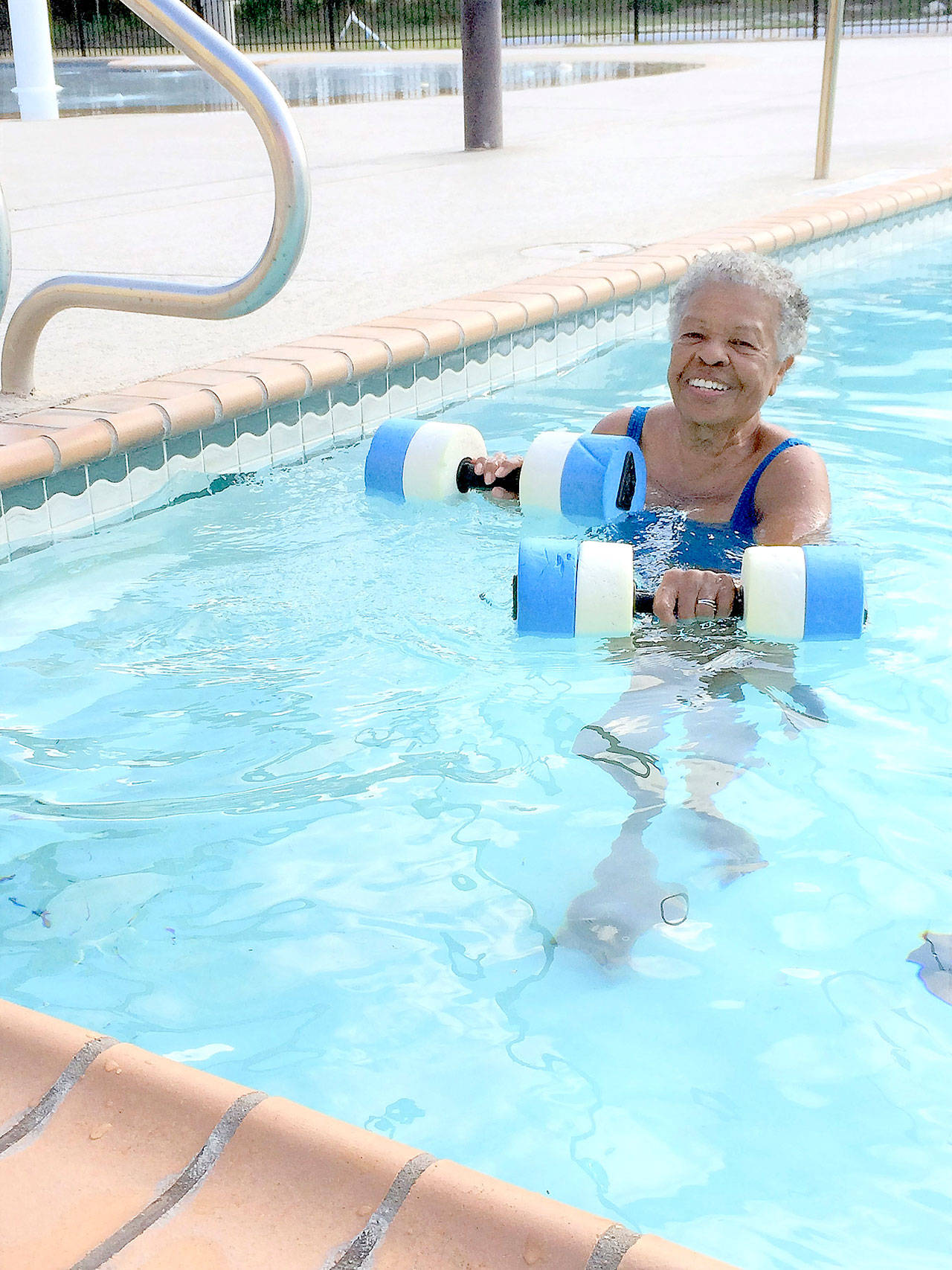By Sharon Jayson
Kaiser Health News
By Sharon Jayson
Kaiser Health News
Wilhelmina Delco learned to swim at 80. Harold Berman is in his 67th year practicing law. Mildred Walston spent 76 years on the job at a candy company. And brothers Joe and Warren Barger are finding new spots in their homes for the gold medals they’ve just earned in track-and-field events at the National Senior Games.
These octogenarians and nonagenarians may not be widely known outside their local communities, but just as with their more famous peers — think Carl Reiner, Betty White and Dr. Ruth (Westheimer) — the thread that binds them is not the year on their birth certificate but the way they live.
“Age shouldn’t be a reason to slow down,” said Joe Barger, 91, of Austin.
It never hurts to have longevity in your genes, but mindset plays a role in how people age, experts say. Some older people have been termed “super-agers” for mental acuity despite their years; for them, the typical age-related decline in brain volume is much slower.
For elders who aren’t among these elite agers, staying vital may be about more than physical or mental agility. Researchers find that society’s focus on youth culture and negative stereotypes about aging prompt memory loss and stress. But older adults who want to dispel notions of becoming feeble have growing ranks to emulate.
Joe Barger and brother Warren, 95, of Chattanooga, competed for two weeks this summer in Birmingham, where Warren earned five gold medals and set a new national high-jump record in his 95-99 age bracket. In badminton, Warren was placed in the 85-89 bracket because there weren’t competitors in his age group.
“My secret of life is to wake up every morning with something to do,” Warren said. “Some people I feel are old because they allow themselves to get old.”
A former insurance salesman and church music director, Warren plays golf and pickleball once a week and badminton twice a week. He mows his lawn, volunteers weekly at his church and sings in the senior choir.
In a study published last year, David Weiss, an assistant professor of sociomedical sciences and psychology at the Columbia Aging Center at Columbia University, found that those who don’t accept the inevitability of aging can “counteract the detrimental and self-fulfilling consequences of negative age stereotypes.”
“My research looks at why no one wants to be old,” Weiss said.
“They want to set themselves apart from this negatively viewed age group. They just want to distance themselves from stereotypes: ‘I’m not like the stereotype. I’m different,’ ” he said. “Adults who believe age is just a number showed better memory performance, but adults who believed aging is set in stone and fixed had a decrease in memory performance and a stronger stress reaction.”
Social psychologist Becca Levy, of the Yale School of Public Health, said her studies found an increase in negative age stereotypes over the past two centuries. “Part of it is due to media and marketing,” she said. “An ageist culture produces many more negative stereotypes.”
Such notions have an impact.
Research by Sarah Barber, assistant professor of psychology at San Francisco State University, found that people blamed routine forgetfulness on their age — calling it a “senior moment” — because popular wisdom reinforces stereotypes of age-related memory decline. Negative stereotypes made older adults “over-attribute everyday memory losses we all have to age,” she said.
Do what is enjoyable
To stay vital, Westheimer advises older people to “do as many things that are enjoyable to them as possible — participating in activities at a senior center, going to the theater and movies and not just sitting home and saying, ‘I’m too old to be out there.’”
Reiner, the 95-year-old writer, comedian, director and creator of the 1960s-era “The Dick Van Dyke Show,” is way too busy to slow down. He and his longtime friend Mel Brooks, who turned 91 this year, have dinner at Reiner’s house most evenings unless the comedic genius behind such classics as “Blazing Saddles” and “The Producers” is away on business. Reiner’s latest book — his 22nd — “Too Busy to Die,” is one of five he has written since turning 90.
Reiner also served as a narrator in the documentary “If You’re Not in the Obit, Eat Breakfast,” which aired on HBO in June. The film, which includes a bevy of the famous and not-so-famous in their 90s and beyond, explored why some thrive and others don’t in their later years.
Staying involved
Westheimer, 89, a sex therapist who dishes out advice in a heavy German accent, also tweets, sometimes several times a day.
“I’m very busy. I’m teaching at Columbia. I’m coming out in 2018 with three new books. A movie is being made about me,” Westheimer said in a phone interview.
Westheimer is out six nights a week. She visits with friends and family — especially her grandchildren — and she serves on several boards.
Delco, who turned 88 in July, is trying to get a bit less involved with the half-dozen or so boards she’s been serving on in Austin. Traffic congestion and travel time to attend board meetings have made this former state lawmaker less inclined to participate, she said.
Five days a week, Delco starts her mornings at a nearby Y, where her days of swimming laps ended because of arthritis. Now, she exercises with barbells in the pool to maintain strength and agility.
Talk to us
> Give us your news tips.
> Send us a letter to the editor.
> More Herald contact information.

























